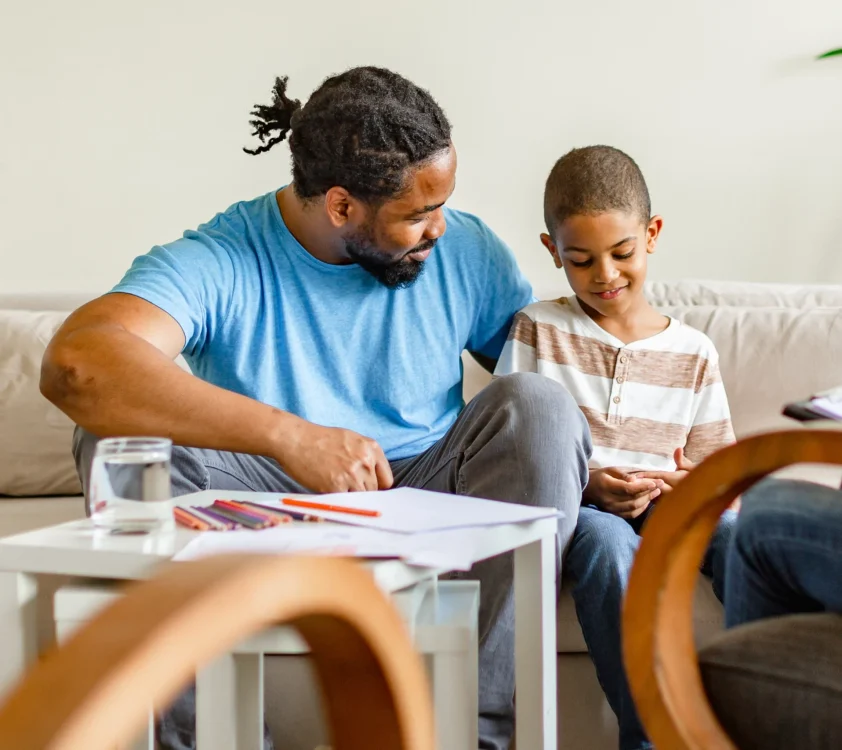Parenting Support
I can offer brief, targeted psychological intervention to parents, to support with emotional and behavioural challenges in the home. I can offer a safe, empathetic space where parents can process their own emotional needs, explore feelings of frustration or helplessness, and develop resilience. Through reflective practice, and psychoeducation, parents can gain an understanding of how to parent therapeutically and respond to their children with increased empathy, consistency, and sensitivity. Regular therapeutic support can help prevent burnout, reinforces self-care, and strengthens parents’ capacity to maintain nurturing, secure relationships.
Dyadic parent-child therapy
Dyadic therapy (also called parent–child therapy or dyadic relational therapy) is a form of psychotherapy that focuses on the relationship between a parent (or caregiver) and a child, treating the dyad (the pair) as the client rather than the individuals separately. It is commonly used to address attachment or relational issues.

Dyadic therapy sessions typically involve both parent and child together in the therapy room, often with the therapist facilitating attuned interaction.
The basic premise of dyadic therapy is that a child’s emotional and behavioral functioning is deeply shaped by the parent–child relationship. Healing and change happen not just by working on the child’s symptoms, but by improving how the parent and child connect, communicate, and co-regulate emotions. The therapist seeks to support the parent to see behaviour as a communication of emotional need.
The goals of dyadic therapy:
• Strengthen the attachment bond between parent and child.
• Improve the parent’s ability to understand and respond sensitively to the child’s needs.
• Enhance the child’s sense of safety, trust, and emotional security.
• Reduce behavioural and emotional challenges.
• Support the parent’s reflective capacity—their ability to think about the child’s inner world and their own reactions.
• Strengthen the parent's capacity for Playfulness, Acceptance Curiosity and Empathy (PACE).
• Support repair when miscommunication or conflict occurs, fostering resilience and trust.
• Develop emotional regulation – Helping both child and parent learn to manage strong emotions together.
• Use play-based interventions to strengthen connection and attunement.
• Facilitate the parent's capacity to use connection before correction.
Get in touch
Feel free to contact me if you have any questions about how therapy works, or to arrange an initial assessment appointment. This enables us to discuss the reasons you are thinking of coming to therapy, whether it could be helpful for you and whether I am the right therapist to help.
It may take time to arrange an initial appointment. If you need to speak to someone urgently, please consider contacting one of the following services:
Newcastle & North Tyneside Crisis Team: 0191 8148899 or the freephone number 0800 652 2863, staffed 24/7 by mental health professionals.
The Samaritans: Open 24 hours, seven days a week: Call 116 123 www.samaritans.org
If speaking to someone over the phone does not feel right for you, you can make contact via email to: jo@samaritans.org
Befrienders: Suicide support befrienders.org
Young Minds: Youngminds.org.uk, 0808802 5544
IMPORTANT: In an emergency situation please call 999
© Tyneheart Psychology, Counselling & Psychotherapy
powered by WebHealer
